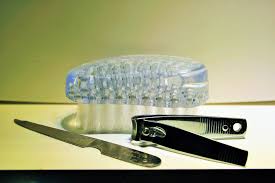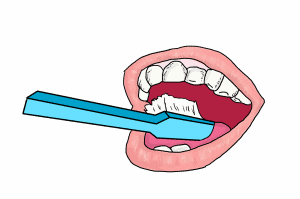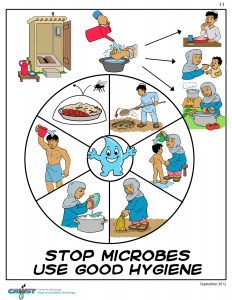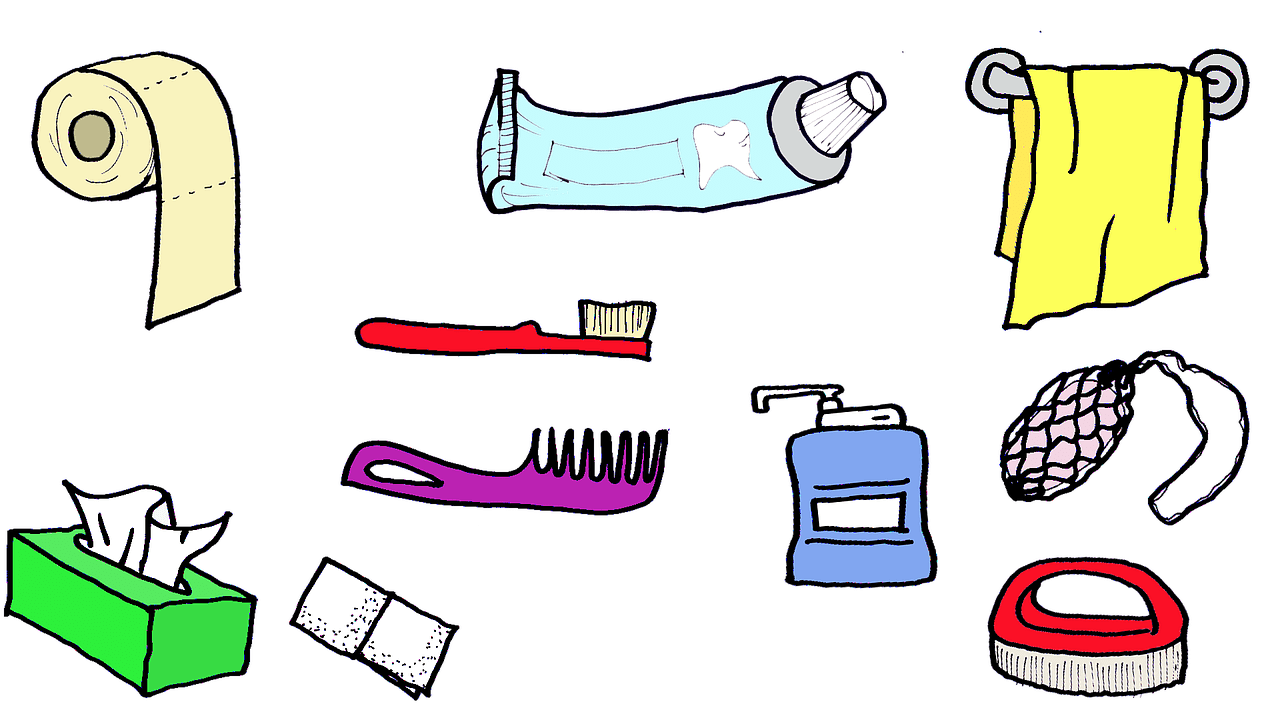Impotence Of Personal Hygiene habits is really necessary, such as washing your hands and brushing and flossing your teeth, help keep bacteria, viruses, and diseases at bay. And there are both mental and physical benefits. “Practicing good body hygiene helps you feel good about yourself, which is important for your mental health,” said Donald Novey, MD, an integrative medicine doctor at Advocate Medical Group in Park Ridge, Illinois.
People with poor hygiene: dirty hair and clothing, body odor, bad breath, lack of teeth, and the like are often considered unhealthy and can be discriminated against.
Personal hygiene: healthy habits include good preparation
If you want to minimize you are of possible infection and also improve your overall health, follow these basic personal hygiene habits:
Bathe regularly
Wash your body and hair regularly. “I’m not saying you have to bathe or bathe every day,” says Dr. Novey. “But you must clean your body and wash your hair at regular intervals that work for you.” Your body is constantly shedding skin. Novey explains: “That skin must come loose. Otherwise, it will agglomerate and cause disease. ”
Cut your nails
Cut your nails. By keeping your fingers and toenails in order and in good condition, you prevent problems such as hanging infected nails and nails. So keep Clean and dry feet are less likely to get athlete’s foot.
you can also visit:https:https://theinfodom.com/professional-manicure-and-pedicure-step-by-step-at-home/

Toothbrush and floss
Brush your teeth after every meal. Do Brush your teeth and floss at least twice a day. Brushing minimizes the accumulation of bacteria in the mouth that can cause tooth decay and gum disease, Novey says. Flossing also helps to keep gums strong and healthy. “The bacteria that accumulate and cause gum disease can go straight to the heart and cause very serious valve problems,” Novey explains. Unhealthy gums can also lead to loose teeth, which makes chewing and good food difficult, he adds. Visit the dentist for a check-up every six months and cleaning to maintain a healthy smile.


Wash your hands for twenty-second before preparing or eating food, after using the toilet, after coughing or sneezing, and after handling, waste contributes greatly to preventing the spread of bacteria and viruses. Keep a hygiene product, such as an alcohol-based disinfectant gel, handy if soap and water are not available.
Deep sleep Provide enough rest, 8 to 10 hours a night, so you are fresh and ready to start the day every morning. Lack of sleep also can make you feel exhausted and can affect the natural defenses of your body, your immune system, says Novey.
Personal hygiene: poor signs of hygiene on other subjects
If someone you know has not bathed or appears to be careless, this may be a sign that he is depressed. “When people are sad depressed, they neglect,” says Novey. Talking about the importance of good personal hygiene to prevent diseases and offering personal hygiene items can help some people. Be honest but sensitive, and understanding in your discussions says, Novey. Despite your efforts, your friend or loved one may need professional help. You should encourage them to consult a counselor or doctor if their personal hygiene does not improve.
Personal Hygiene: Good Habits Help you Stay Healthy
For most people, good hygiene is part of their daily routine and gives little importance. They bathe, brush their teeth, visit the dentist and doctor for regular checks and wash their for twenty-second hands when preparing or eating food and handling unhealthy items. To keep those who are caring and healthy, to help them learn, and to ensure that they apply good personal hygiene.
Bad breath
Good oral hygiene contains regular teeth brushing and flossing. Bad breath can be something by diseases of the teeth, gums, and mouth, such as infections. Most people have bad breath in the morning because no saliva is produced during sleep. Some foods that can cause bad breath are garlic and onion. Mouthwashes, mouth sprays, and flavored chewing gum can smell your breath good for a while, but if you have a health problem in your mouth, you should go to your dentist.
Travel Hygiene
If you travel abroad, be very careful if you are unsure whether the water is safe. Suggestions include:
Just drink bottled water.
Do not use tap water to clean your teeth.
When washing your hands, make sure that they are completely dry before handling food.
Do not wash fruit or vegetables in perilous
If you have no other water
informant, make sure the water is boiling before you drink it by boiling it for a minute.
Make sure that plates, cups, or other kitchen utensils are completely dry after washing.
come back
-
Impotence Of Personal ,Household And Daily Hygiene
Household hygiene refers to hygiene practices that prevent the spread of diseases in the home and other everyday environments, such as social institutions, public transportation, the workplace, public places, etc.
Hygiene in different environments plays a vital role in preventing the spread of infectious diseases. Includes procedures used in various household situations, such as hand hygiene, respiratory hygiene, food and water hygiene, general household hygiene (environmental and surface hygiene), pet care, and home care (care for people with a higher risk of infection).

primary sources of home
The primary sources of home infection are people (who are carriers or contaminated), food (especially raw food) and water, and pets (in the US over 50% of households have one or more pets. Sites that collect stagnant water, such as sinks, toilets, drain pipes, cleaning tools, washcloths, etc., easily support microbial growth and can become secondary infections.
However, the species are primarily those that threaten the “at-risk” groups. Via food. Or water, and may develop an infection.
Impotence Of Personal Hygiene cleaning procedures
Good hygiene at home means participating in hygiene practices at critical points to break the infection chain. And the infection can be the result of direct transfer of pathogens from the surface by Van de Hands or the food to the mouth, the nasal mucosa, or the eye, the ‘hygienic cleaning procedures’ must be sufficient to remove pathogens from critical surfaces
Hygiene in the kitchen, bathroom powder room, and toilet.
Routine cleaning of locations and surfaces (hands, food, drinking water) (such as toilet seats and drain handles, door and tap handle, work surfaces, bathroom surfaces, and sinks) in the kitchen, bathroom, and Toilet reduce the risk of spreading pathogens. especially if someone has diarrhea. If you use public toilets, you can always use a toilet seat disinfectant to spray the seat before you sit on it.
you can also search :https://theinfodom.com/hair-care-routine-for-thin-and-damaged-hair-step-by-step/
Toilet seat disinfectant
A toilet seat disinfectant helps to kill bacteria, just like any other disinfectant that helps protect against urinary tract infections. Pathogens can survive in snails or scales that remain in bathrooms, showers, and sinks after washing and bathing. Water trapped in the shower tubes can be contaminated with pathogens that are transported to the air when the shower is opened. If a shower has not used for some time, it must be kept at a warm temperature for a few minutes before it is used,its really Impotent Of Personal Hygiene
Prevent the spread of fungal infections
Thorough cleaning is vital to prevent the spread of fungal infections. Fungi can live on walls and floors and in shower curtains. Mould can be responsible for diseases, cause allergic reactions, deteriorate / damage surfaces and cause unpleasant odours. The most important places for mould growth are lifeless surfaces, including carpets and soft furnishings. Fungi in the air are generally associated with moist conditions, poor ventilation or closed air systems
Importance of cloth hyegiene
Clothing hygiene implies practices that prevent diseases and spread them through dirty clothing and bedding, such as towels. Fabrics or other fabric items used during food preparation or to clean the toilet or clean material such as droppings or vomit are a particular risk.
Microbiological and epidemiological
Microbiological and epidemiological data indicate that clothing and household linen, etc. are a risk factor for the transmission of infections at home and in daily life, as well as in institutional settings. The lack of quantitative data on contaminated clothing with diseases in the home environment makes it difficult to evaluate the extent of this risk.
It also indicates that the dangers of clothing and household linen are slightly lower than those of hands, hand contact, and surfaces in contact with food and cleaning cloths, but these risks still need to be managed by effective washing methods.
Risks of infectious Diseases
The risks of infectious diseases from contaminated clothing, etc., can increase considerably under certain circumstances, for example in medical care situations in hospitals, nursing homes, and the home environment where someone has diarrhea, vomiting, or skin or sore infection. It grows in circumstances where someone has reduced immunity to diseases.
Impotence Of Personal Hygiene Measures
Good personal hygiene including clothing hygiene, are an essential part of reducing the spread of antibiotic-resistant strains. In the community, healthy people can become persistent carriers of MRSA or fecal carriers of entering bacterial strains that can transport resistance factors to multiple antibiotics (e.g., NDM-1 or ESBL-producing strains).
During washing, the temperature and detergent work to reduce the levels of microbial contamination in the fabrics. The chemical inactivation of microbes by surfactants and bleach-based on activated oxygen used in detergents contributes to the hygienic effectiveness of washing. Other factors, such as drying and ironing, can contribute to this.
Things to Remember
Impotence Of Personal Hygiene is one of the most useful ways to protect ourselves and others against many diseases, such as gastroenteritis.
Wash your hands regularly, second twenty especially before preparing or eating food and after using the bathroom.
you can also visit:https://theinfodom.com/14-benefits-wireless-ring-video-doorbell/

